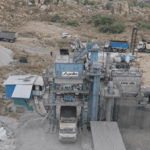Millennial footfalls increased by 30% following the pandemic, says Kaushal Agarwal, Chairman, The Guardians Real Estate Advisory
Your take on real estate in 2021 and outlook for 2022
The recent surge in demand for housing, against the backdrop of pandemic-inflicted necessity, low-interest rates, and reduced stamp duty, has given an indication that the real estate sector is on track. However, the absence of industry status, a single-window clearance, and more financial options for developers are some of the issues that may eventually come to haunt the sector. Moreover, the Covid-19 pandemic has changed the demand and supply dynamics. Even though the concept of owning a home has gained renewed importance, the very notion of an abode has changed. Today, the new remote working model has not only reduced the need of buying homes in Tier 1 cities, where most offices are located but also created a new market in Tier 2 and 3 locations.
This reverse migration revealed that employees would prefer to work from Tier 2 or 3 cities and if given an opportunity they would buy bigger homes in smaller satellite zones rather than spending big in the plush cities. This new rising trend has indeed created a niche market for the developers and will provide opportunities for real estate players to expand their operations in non-metro cities in 2022. At the same time, it has also forced the sector to reinvent its business model with multi-blend projects to meet the new aspirations of the urban rich who are looking for extra space and luxury in the heart of the big cities. To put it the other way, the real estate companies that adapt their investment and development strategies to stay ahead of changes in the real estate scenario will be best positioned to reap the benefit of 2022 and leverage the overall Zeitgeist.
Post relaxation in lockdown, how is the market for residential real estate shaping up in India?
The post lockdown scenario is momentous for the residential real estate sector. The historically low-interest rate, the lucrative festive offers accompanied by flexible payment options and better consumer awareness has made the post lockdown market the most successful of the decade. Today, what we are witnessing in the Indian real estate market is quite unusual. In recent history, there has never been a period where all the factors that determine buying sentiments were in favor of buyers. Nothing is standing in the way of home buyers, whether it's favorable interest rates, offers from developers, or flexible payment options. The other interesting aspect of this development is also the fact that consumers know this is going to be the last bus to own a home at the best value proposition.
Is there any shift in buyer’s preference for location considering health and safety concerns as Covid-19 virus is still active?
Millennials are showing aspirational changes more so than preferences for locations. In the pre-pandemic period, millennials have shied away from investing in real estate. Buying a home was the last thing they would have thought to do. This was because they were more drawn to the flexibility of changing jobs and moving to other cities in search of better career opportunities. However, Covid-19 has changed the way they live and work and hence their aspirations and needs have also evolved. With home-based work and education becoming the new norm, millennials realized they needed more space at home, so they increased the footprint in their homes. Millennial footfalls increased by 30% following the pandemic, according to our data. And we expect at least 60-70% of the millennials who are looking to buy a new home will buy in the next few months.
Which are the cities that are witnessing maximum residential sales post relaxation in lockdown?
Home sales across tier 1 cities of Ahmedabad, Bangalore, Chennai, Hyderabad, Kolkata, Mumbai Metropolitan Region (MMR), National Capital Region (NCR), and Pune jumped 57 per cent post-festive season this year.
How is the hike in building materials prices affecting the residential real estate sector?
Real estate prices have not shot up in the last couple of years despite the sector being suppressed by a volcano of disruption resulting in sluggish market economics. The choking of liquidity, subdued demand, muted investment, and consecutive structural reforms led to a system reboot. During the Covid-19 pandemic crisis, construction sites were shut down, laborers were displaced, and travel restrictions halted sales visits. However, the sector played the role of a helpful Samaritan by not passing the burden on to the home buyers. The developers are operating in a thin margin today, and despite the many challenges they face, property prices are still rationalised across the segment to protect the positive sentiments of consumers. However, if the critical raw material price and construction cost continue to surge at a rocket pace then the sector will be compelled to pass the burden on to home buyers. If the current trend continues in the steel, cement, and other key allied industries, then, there are chances that the property prices are likely to shoot up 15-20% in the next six months.
It has been four years of RERA. How is this act benefitting / affecting residential real estate developers in India?
RERA has helped the sector to become more resilient. On the one hand, it has provided a say for home buyers while on the other it has brought a level playing field for organized and transparent entities. It has paved the path for corporate and listed companies to expand and grow, which in other cases was tilted in favour of local and un-organized players. In a nutshell, RERA has made the sector more organized, transparent, and robust which appears to me as the stepping-stones towards the sector turning into a user market.”
What are the prime challenges faced by residential realty players in India?
Institutional finance was anyway a challenge; the pandemic has seen the situation worsen. The delays caused by the shortage of funding in turn reflect on RERA defined possession dates not being achieved. Considering the vacuum in the availability of institutional finance for the cash trapped developers, we have formed a historic JV with India’s leading real estate private equity to set up a development management platform called Ground Holding Realty. The company will help mid-sized developers and landowners to develop and monetize their assets. In this partnership, the Guardians will take care of the project development right from land to liasoning to design to restructure to sales & marketing. We have earmarked Rs 2,000 crore for lending to the real estate projects to be managed by the joint venture company.
Will the recovery phase in residential real estate continue? Your take
The job market is picking up, the stock market is showing robust optimism and IT is giving positive results; these are indications of economic stability. There is a relationship between the growth of real estate and other key industry sectors, so when these sectors do well, it also reflects well on real estate. So, I don't think this is a temporary phenomenon but will continue for at least five years.









